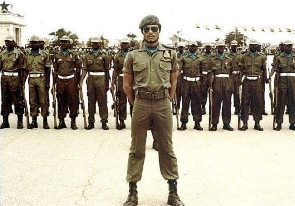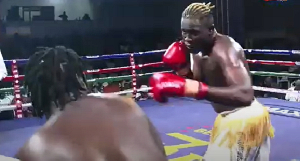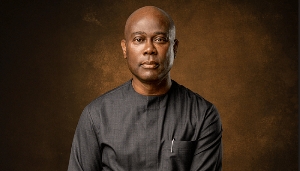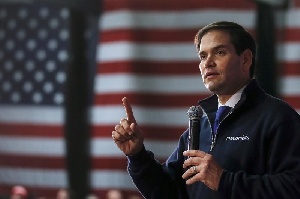The last border closure Ghana experienced was in 2020 at the height of the COVID-19 pandemic when almost all governments the world over were employing a similar measure to combat the importation of the deadly virus.
In recent years, a number of West African governments have closed their borders for security reasons. Guinea, Mali and Burkina Faso all closed their borders when the military successfully overthrew civilian governments.
Back in 1983, the then Provisional National Defense Council (PNDC) government led by Jerry John Rawlings closed Ghana’s borders with our eastern neighbour, Togo.
The closure on January 17 was for security reasons.
Over in Nigeria, the civilian government of Shehu Shagari was implementing a policy of expelling over two million West African migrants – of which an estimated one million were Ghanaians. They were deemed to be part of the economic woes that Nigeria was experiencing.
Why Rawlings opted to close border with Togo
Whiles January 17 was the date the expulsion order took effect, the government in Lagos had given till January 31st for all ‘aliens’ to leave. As expected, border posts were going to be busy as Ghanaians and other West Africans willing to return by land headed for the border points.
Those headed to Ghana needed to cross three borders: first from Nigeria into Benin and Benin into Togo before the final lap from Togo into Ghana.
The JJ Rawlings-led PNDC government ordered a border closure citing security considerations forcing Togo to do same with its border with Benin.
Benin suffers unintended headache, Rawlings lifts closure<>
In the South African Mail and Guardian newspaper article titled ‘Ghana Must Go: The ugly history of Africa’s most famous bag,’ Shola Lawal wrote about the effect of the closure citing among others, how Benin became the home of mass refugees aiming to enter Togo and onward to Ghana.
Benin had to endure a refugee crisis characterized by spreading illnesses and squalid condition which drew support from international aid agencies.
“The deadlock in 1983 was finally broken by Ghana which reopened its borders and sent ships to Cotonou in Benin to reduce the numbers travelling by road. Many fell into the sea because of the sheer volume of people scrambling for a place on the ships,” the M&G article added.
Buhari imposes sterner expulsion order in 1985
In 1985, Nigeria was in the hands of then military ruler, General Muhammadu Buhari (Nigeria’s current president) who had overthrown the Shagari government for similar reasons as why Rawlings overthrew Limann in 1979.
Buhari "announced another expulsion — this time, of all foreigners, including those who had residence permits. About 700 000 were again forced out," the article clarified.
Current relationship between Ghana and Nigeria
With Ghana and Nigeria under democratic rule since 1992 and 1999 respectively, diplomatic relations have been warm and largely cordial across the years.
Almost all presidential inaugurations have seen leaders of both countries attending as well as visits between leaders intermittently.
Years back, Buhari was Guest of Honour for Ghana’s Independence whereas Akufo-Addo has flown to Abuja to visit Buhari after he returned from extended medical treatment.
The ‘fights’ between both countries has largely been reserved for social media with the infamous Jollof Wars, Ghanaians having a go at Nigerians over a viral video of statement and vice versa, in recent times Nigerians hitting out at Ghana over the Meek Mill – Jubilee House saga.
SARA
Why Rawlings closed border with Togo in 1983 after Nigeria expelled a million Ghanaians
The last border closure Ghana experienced was in 2020, at the height of the COVID-19 pandemic, when almost all governments the world over were employing a similar measure to combat the importation of the deadly virus.
In recent years, a number of West African governments have closed their borders for security reasons. Guinea, Mali and Burkina Faso all closed their borders when the military successfully overthrew civilian governments.
Back in 1983, the then-Provisional National Defense Council (PNDC) government led by Jerry John Rawlings, closed Ghana’s borders with our eastern neighbour, Togo.
The closure on January 17 was for security reasons.
Over in Nigeria, the civilian government of Shehu Shagari was implementing a policy of expelling over two million West African migrants, of which an estimated one million were Ghanaians. They were deemed to be part of the economic woes that Nigeria was experiencing.
Why Rawlings opted to close border with Togo
While January 17 was the date the expulsion order took effect, the government in Lagos had given until January 31st for all ‘aliens’ to leave. As expected, border posts were going to be busy as Ghanaians and other West Africans willing to return by land headed for the border points.
Those headed to Ghana needed to cross three borders: first from Nigeria into Benin, then from Benin into Togo, before the final lap from Togo into Ghana.
The JJ Rawlings-led PNDC government ordered a border closure, citing security considerations, forcing Togo to do the same with its border with Benin.
Benin suffers unintended headache, Rawlings lifts closure
In the South African Mail and Guardian newspaper article titled ‘Ghana Must Go: The ugly history of Africa’s most famous bag,’ Shola Lawal wrote about the effect of the closure, citing, among others, how Benin became the home of mass refugees aiming to enter Togo and onward to Ghana.
Benin had to endure a refugee crisis characterized by spreading illnesses and squalid conditions which drew support from international aid agencies.
“The deadlock in 1983 was finally broken by Ghana which reopened its borders and sent ships to Cotonou in Benin to reduce the numbers travelling by road. Many fell into the sea because of the sheer volume of people scrambling for a place on the ships,” the M&G article added.
Buhari imposes sterner expulsion order in 1985
In 1985, Nigeria was in the hands of its then-military ruler, General Muhammadu Buhari (Nigeria’s current president), who had overthrown the Shagari government for similar reasons as why Rawlings overthrew Limann in 1979.
Buhari "announced another expulsion — this time, of all foreigners, including those who had residence permits. About 700 000 were again forced out," the article clarified.
Current relationship between Ghana and Nigeria
With Ghana and Nigeria under democratic rule since 1992 and 1999, respectively, diplomatic relations have been warm and largely cordial across the years.
Almost all presidential inaugurations have seen leaders of both countries attending, as well as visits between leaders intermittently.
Buhari was the Guest of Honor for Ghana's Independence years ago, whereas Akufo-Addo flew to Abuja to see Buhari after he returned from extensive medical treatment.
The ‘fights’ between both countries have largely been reserved for social media, with the infamous Jollof Wars, Ghanaians having a go at Nigerians over a viral video of a statement and vice versa, and in recent times, Nigerians hitting out at Ghana over the Meek Mill–Jubilee House saga.
SARA/SEA
General News of Wednesday, 18 January 2023
Source: www.ghanaweb.com













